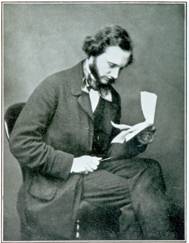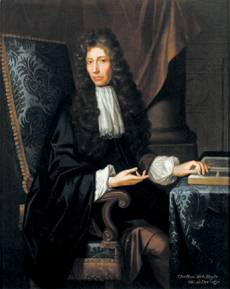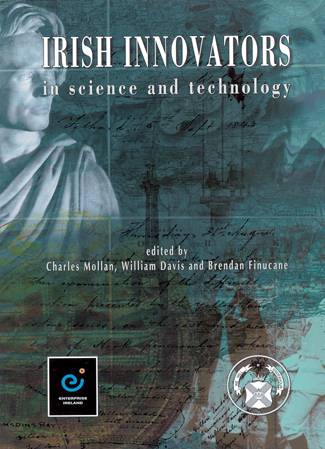| 2004 |

|
YEAR BOOK |
History of Science
|
What is an 'Irish Scientist'?
|

William Thomson, Lord Kelvin
From time to time, I come across articles in various Irish publications which mention famous scientists of past years. It seems to me to be such a pity that, when these scientists have been born in Ireland, or otherwise have close Irish connections, this fact is often not mentioned � hardly surprising perhaps, since, in our education system, science history, and Irish science history in particular, have not in the past received much attention either in the science curriculum or in the history curriculum.
As an example of what can happen, I recently read an article which made reference to the 'Weaire-Phelan structure'. The latter, devised at TCD by Professor Denis Weaire and his former research student Robert Whelan, is the best solution so far to the challenge: 'how can you divide up space into equal volumes all with a minimum surface area?' The article noted that Weaire and Phelan had responded to 'a research challenge laid down more than a century earlier by none other than the great British scientist Lord Kelvin'.
Having noted that Denis Weaire was actually born in India, let's consider the nationality of William Thomson, Lord Kelvin (1824�1907). He was born in Belfast of a Scottish family which had arrived in Ireland around 1641. His father and family moved 'back' to Scotland nearly two hundred years later, in 1832, and Thomson carried out almost all of his important scientific work in Glasgow. His older brother James (1822�1892) returned to Belfast, where he was Professor of Engineering at the Queen's College there from 1857 to 1873.
Was William Thomson Irish or 'British'? Both islands have a claim. I would suggest that we might refer to him as an Ulster Scotsman . I wonder how many people would be unhappy with such a designation? Would it satisfy those who like the 'British' tag? It wouldn't offend me, and it would recognise the very important Scottish dimension in his background, something which many people from Scotland would want to stress. They too suffer from this problem which doesn't sufficiently recognise that the two largest islands off the European mainland house three kingdoms and a principality, even though one bit doesn't have a King any longer, and the rest have only one Queen. It is worth remembering something that many foreigners do not seem to appreciate, whatever about natives, and this is that Ireland is not now, and never has been, part of Great Britain, although it has been united to it, to a greater or lesser extent at various times in the past, and part of the island remains so to this day. If you take the trouble to look at one, you will find that a 'British' passport is actually a passport of the 'United Kingdom of Great Britain and Northern Ireland': impeccably geographically and historically correct.
What does Kelvin himself have to say about this matter? Though everyone knew him as the Professor of Natural Philosophy at the University of Glasgow, a post he held for fifty-three years, from 1846 until 1899, I have come across only one instance in which he actually referred to his nationality (if anybody knows any others, please let me know). This was when he was giving an address to the Birmingham and Midlands Institute on 3 October 1883. He said 1 :
|
The only census of the senses, so far as I am aware, that ever before made them more than five, was the Irishman's reckoning of seven senses. I presume the Irishman's seventh sense was common sense; and I believe that the possession of that virtue by my countrymen � I speak as an Irishman�.will do more to alleviate the woes of Ireland, than even the removal of the "melancholy ocean" which surrounds its shores.
|
|
Sir William Thomson's elevation to the peerage as Baron Kelvin of Largs symbolised the social summit of a remarkable life lived in the context of Victorian Britain. Yet that ultimate acclaim did not flow from scientific and technical achievement alone, but also from his direct involvement in the political cause of Liberal Unionism during the 1880s. That involvement derived from the Irish context into which he had been born, a context of cultural and social liberalism upon which his enduring personal values were founded.
|

Robert Boyle
The well-known broadcaster and commentator, David McWilliams, recently recalled his schooldays in Blackrock College, Dublin 3 :
|
"Who, McWilliams, was the greatest Irishman ever?" bellowed Sandy, my first physics teacher. "Forget de Valera," he said, "Forget Parnell, Pearse, Joyce and all those second raters; the greatest Irish man was a Protestant. Who was he?"
My reply was always the same. (Sandy asked the rhetorical question practically every week.) "Robert Boyle, of course". "And why was he more clever than Newton?" "Because he experimented, sir." "And why is this so important, McWilliams?" "Because, Sir, anyone can invent a theory - only the experimenter tells the truth." (Weird, the stuff you remember from school, isn't it?) |
Robert Boyle (1627�1691) was born in Lismore, Co. Waterford, and famously stated in 1654, when he visited his estates in Ireland 4 :
|
I live here in a barbarous country, where chemical spirits are so misunderstood, and chemical instruments so unprocurable, that it is hard to have any hermetical thoughts in it, and impossible to bring them to experiment�. For my part, that I may not live wholly useless, or altogether a stranger in the study of nature, since I want glasses and furnaces to make a chemical analysis of inanimate bodies, I am exercising myself in making anatomical dissections of living animals: wherein�.I have satisfied myself of the circulation of the blood�.and have seen (especially in the dissections of fishes) more of the variety and contrivances of nature, and the majesty and wisdom of her author, than all the books I ever read in my life could give me convincing notions of.
|
As is well known, Boyle carried out essentially all of his creative work in England, and would not have achieved anything like so much if he had lived in Mallow in Co. Cork, which is where he was expected to live with the woman his father had chosen to be his wife, Anne Howard. Fortunately for science, she turned him down, and he remained a bachelor, living instead in Dorset, Oxford and London. Nevertheless it was the massive amount of money accumulated (by both fair means and foul) in Ireland by his father � the 'upstart' Great Earl of Cork, Richard Boyle (1566�1643), whom McWilliams describes as the 'greatest robber baron of the day' � which gave him the freedom to devote his life to the study of chemistry and other topics. Here again the Irish context is relevant.
Arthur Wellesley
Straying away from science, the Dublin-born 'Iron' Duke of Wellington (1769�1852) is famous, among other things, for his statement that if you are born in a stable you don't have to be a horse. Nevertheless one of the most recent of his many biographers records 5 :
|
Wellington was a child of eighteenth-century Ireland, deeply marked by the time and place of his birth. Throughout his long life there was the lonely quality of the outsider about him, and this isolation has clear origins in his childhood as a member of a besieged Protestant minority in a Catholic land. He would have resented George Bernard Shaw's assertion that he was 'an intensely Irish Irishman'.
|
Of course, science is not bound by the constraints of national boundaries. But it remains the case that people will always be influenced in their personalities, outlook, initiatives and achievements by their family genes and background, and by their experiences in the places in which they and their families have lived.
For over 300 years, Irish-born scientists, and others with Irish connections, have made distinguished contributions to the development of scientific understanding. Unfortunately, this is an aspect of our cultural heritage which receives little recognition, though it may at least partly account for the fact that the country has adapted so well to the new technological age in which we live. We seem keen to acknowledge literary people like George Bernard Shaw, James Joyce and Samuel Beckett, even though they spent most of their creative years outside Ireland. Surely we can also claim some of the renown due to our scientists who found it necessary to go abroad to enjoy opportunities which were not available to them at home?
If you want more information, brief biographies of many of these, and of Irish scientists who achieved at home (there are 154 biographies in all), can be found in the 2002 book published by and available from the Royal Irish Academy ( [email protected] ), Irish Innovators in Science and Technology . This volume demonstrates that science and technology are part of our historic cultural heritage. It should be part of our pride in being Irish that we recognise this ability.

Irish people enhanced the scientific reputation of other countries in the past, as they continue to do to-day. I, for one, am proud of them.
References
1.�William Thomson, Popular Lectures and Addresses , Volume 1 (London: Macmillan & Co., 1889), p. 254.
2.�Crosbie Smith & M. Norton Wise, Energy & Empire � A Biographical Study of Lord Kelvin (Cambridge: Cambridge University Press, 1989), p. 3.
3.�David McWilliams, 'Money and Medicine don't go', Sunday Business Post , 7 March, 2004.
4.�R.E.W. Maddison, The Life of the Honourable Robert Boyle F.R.S . (London: Taylor and Francis, 1969), p. 84.
5.�Richard Holmes, Wellington the Iron Duke (London: HarperCollins, 2002), p. 3.
Contact: Charles Mollan; E-mail: [email protected]